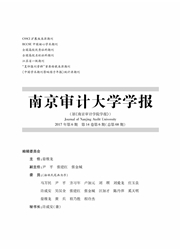

 中文摘要:
中文摘要:
会计稳健性是重要的会计准则和公司治理机制,从产生以来就受到广泛的关注和研究。国内外学者一般从五个方面研究会计稳健性,分别是会计稳健性的定义、存在性、影响因素、计量方法和经济后果。从影响因素和经济后果两方面总结学者研究会计稳健性的重要文献,结果显示:会计稳健性的影响因素主要包括契约、诉讼、税收、监管、股权集中度和股权制衡度以及独立董事特征;会计稳健性的经济后果主要包括投资效应和融资效应两个方面,其中投资主要分为投资不足、投资过度及并购,融资主要分为债务融资和权益融资。
 英文摘要:
英文摘要:
Accounting conservatism is an important accounting standard and corporate governance mechanism, which has been received widespread attention and study since it was produced. Domestic and foreign scholars generally study accounting con- servatism from five perspectives: definition, existence, influence factors, measurement methods and economic consequences. This paper summarizes some important literature on the research of accounting conservatism from the two perspectives of influ- ence factors and economic consequences. The results show that the influence factors of accounting conservatism mainly include contract, litigation, tax, regulation, ownership concentration and equity balance degree and the characteristics of independent directors. The economic consequences of accounting conservatism mainly include two aspects : investment effect and financing effect. Investment is mainly divided into three types: under-investment, excessive investment and mergers and acquisitions, financing is divided into debt financing and equity financing.
 同期刊论文项目
同期刊论文项目
 同项目期刊论文
同项目期刊论文
 期刊信息
期刊信息
